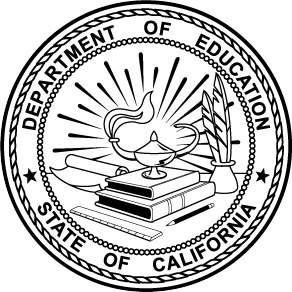Many students in seventh and eighth grade experience developmental and physical changes related to puberty. Students at this age are also generally becoming more aware of their own sexuality as well as that of others. Teaching human development and sexuality education can be interesting for many teachers, but may also be a subject of trepidation for some educators and administrators (HHS Office of Adolescent Health 2017). Schools and districts must ensure their educators have the training, resources, and support to teach these subjects effectively—and that the school environment is welcoming, inclusive, and safe for LGBTQ+ students.
California Healthy Youth Act
Enacted January 1, 2016, the California Healthy Youth Act (CHYA) law integrates the instruction of comprehensive sexual health education and HIV prevention education. The bill renamed the California Comprehensive Sexual Health and HIV/AIDS Prevention Education Act to the California Healthy Youth Act. It requires school districts to ensure that all students in grades seven to twelve, inclusive, receive comprehensive sexual health education and HIV prevention education.
The California Healthy Youth Act has five primary purposes:
- To provide pupils with the knowledge and skills necessary to protect their sexual and reproductive health from HIV and other sexually transmitted infections and from unintended pregnancy;
- To provide pupils with the knowledge and skills they need to develop healthy attitudes concerning adolescent growth and development, body image, gender, sexual orientation, relationships, marriage, and family;
- To promote understanding of sexuality as a normal part of human development;
- To ensure pupils receive integrated, comprehensive, accurate, and unbiased sexual health and HIV prevention instruction and provide educators with clear tools and guidance to accomplish that end;
- To provide pupils with the knowledge and skills necessary to have healthy, positive, and safe relationships and behaviors
For more information: California Healthy Youth Act (CHYA) www.cde.ca.gov/ls/he/se/

The law also requires that all information presented be objective and medically accurate, which is defined as being verified or supported by research conducted in compliance with scientific methods and published peer-reviewed journals, where appropriate, and recognized as accurate and objective by professional organizations and agencies with expertise in the relevant field such as the federal Centers for Disease Control and Prevention, the American Public Health Association, the American Academy of Pediatrics, and the American College of Obstetricians and Gynecologists (Education Code 51931(f)).
The Orange County Department of Education does not control or guarantee the accuracy, relevance, timeliness or completeness of this outside information. Further, the inclusion of links to particular items in hypertext are not intended to reflect their importance, nor is it intended to endorse any views expressed or products or services offered on these outside sites, or the organizations sponsoring the sites.
